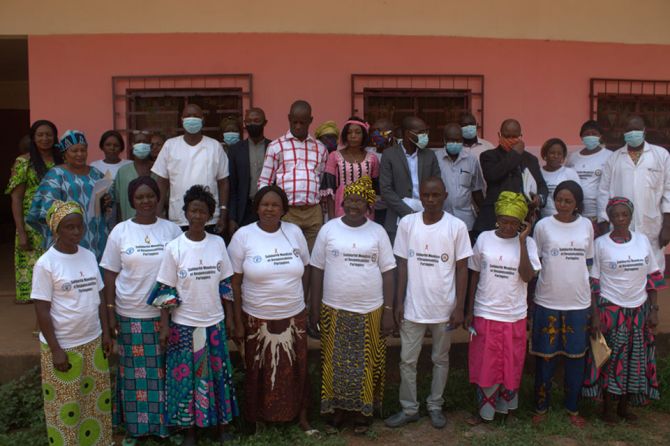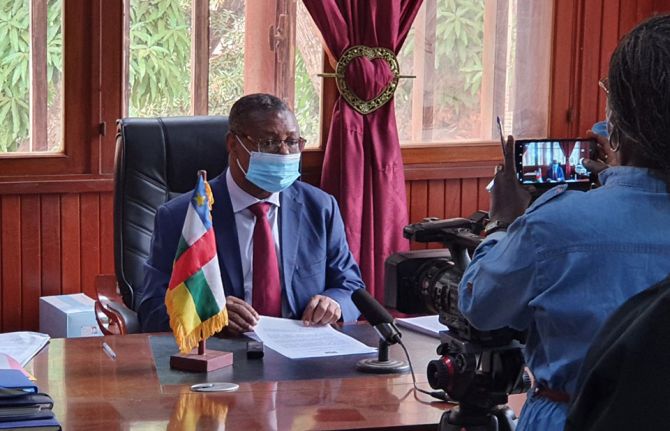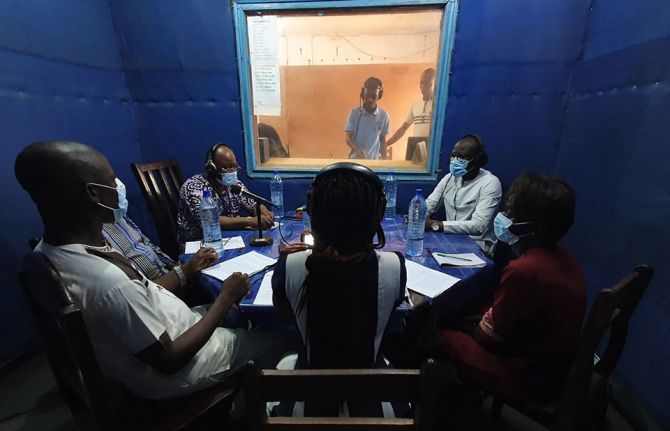



Feature Story
Central African Republic marks Zero Discrimination Day
02 March 2021
02 March 2021 02 March 2021On 1 March, people around the world join together to celebrate Zero Discrimination Day, which this year highlighted the urgent need to take action to end inequalities.
In recent years, the Central African Republic has made the reduction of health inequalities a national priority. In mid-2019, 10 priority areas towards universal health coverage were established. These include the objective of ensuring that every citizen in the country has access to a health centre within 5 km of his or her home.
The country was the first to join the Global Partnership for Action to Eliminate all Forms of HIV-Related Stigma and Discrimination, which through harnessing the combined power of, and using the unique skills of, governments, civil society and the United Nations aims to consign HIV-related stigma and discrimination to history.
To mark Zero Discrimination Day this year, the country organized several activities ahead of and during the day. A declaration recalling the government’s commitment to non-discrimination and equality was issued by the Minister of Health and Population on television and radio. “It is only by addressing inequalities that we can achieve the Sustainable Development Goals, including those related to well-being and health for all,” said Pierre Somse, the Minister of Health and Population.
Recent studies show that inequality and stigma are major obstacles to access to health services. For example, more than 80% of people living with HIV in the country report having experienced discrimination or stigma. “These challenges are further compounded by conflicts and attacks on populations and health personnel that deprive hundreds of thousands of our citizens of their rights, including the right to life, dignity and health,” Mr Somse added.
A civil society consultation was organized to flesh out the priorities for the elimination of stigma and discrimination in the country. A round-table meeting was also held on a national network of human rights journalists radio programme to raise awareness on the negative impact of stigma and discrimination as a major barrier to people taking up HIV prevention, treatment, care and support services. Speaking on the programme, Aminata Adoum, of the National Association of Women Lawyers, highlighted the work of her organization in supporting women living with HIV against discrimination and violence.
On Zero Discrimination Day 2020, health professionals, including professional organizations of doctors, nurses and midwives, as well as patients’ associations, signed a National Charter for Quality of Care and Patients’ Rights that sets the principles of humanism, ethics and respect for dignity to guide relations between patients and health-care providers. This year, the patients’ charter was posted in health facilities in the capital city, Bangui, and dedicated sensitization sessions on the charter took place for medical staff in two major health-care centres in the capital.
“This Zero Discrimination Day campaign is part of a comprehensive set of priority activities to address human rights barriers to HIV services that the country will be implementing over the next three years, including community-led monitoring of human rights violations, know your rights education, legal services, the development of anti-discrimination law and engagement with community leaders, legislators and opinion-makers,” said Patrick Eba, the UNAIDS Country Director for the Central African Republic.



